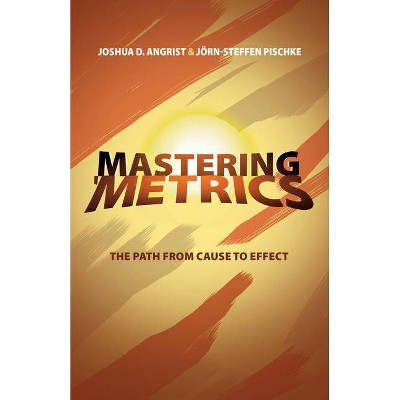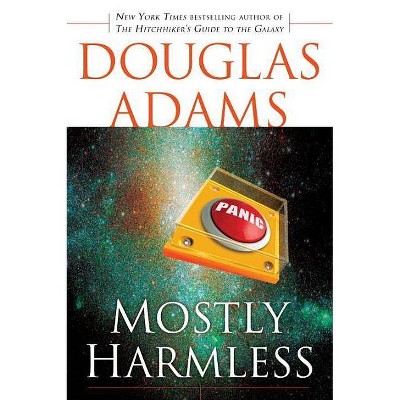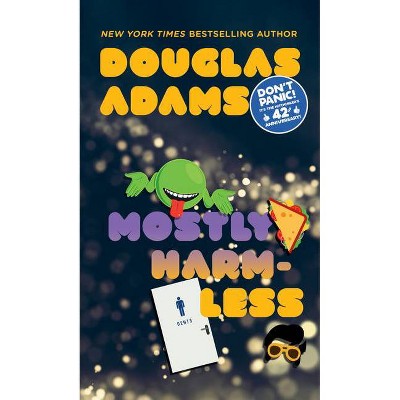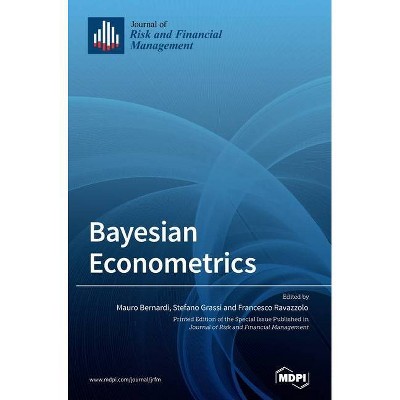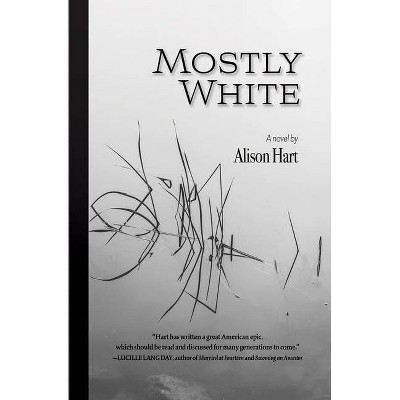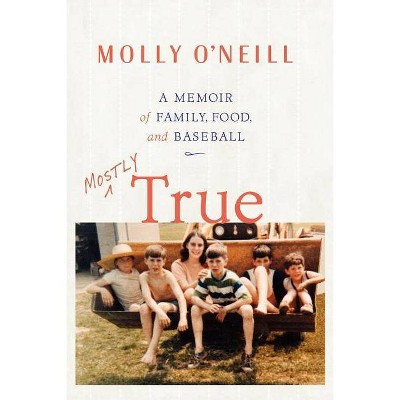Mostly Harmless Econometrics - by Joshua D Angrist & Jörn-Steffen Pischke (Paperback)
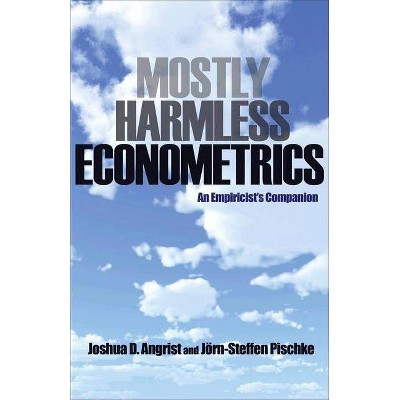
Similar Products
Products of same category from the store
AllProduct info
<p/><br></br><p><b> Book Synopsis </b></p></br></br><p><b>From Joshua Angrist, winner of the Nobel Prize in Economics, and Jörn-Steffen Pischke, an irreverent guide to the essentials of econometrics</b> <p/>The core methods in today's econometric toolkit are linear regression for statistical control, instrumental variables methods for the analysis of natural experiments, and differences-in-differences methods that exploit policy changes. In the modern experimentalist paradigm, these techniques address clear causal questions such as: Do smaller classes increase learning? Should wife batterers be arrested? How much does education raise wages? <i>Mostly Harmless Econometrics</i> shows how the basic tools of applied econometrics allow the data to speak. <p/>In addition to econometric essentials, <i>Mostly Harmless Econometrics</i> covers important new extensions--regression-discontinuity designs and quantile regression--as well as how to get standard errors right. Joshua Angrist and Jörn-Steffen Pischke explain why fancier econometric techniques are typically unnecessary and even dangerous. The applied econometric methods emphasized in this book are easy to use and relevant for many areas of contemporary social science.<br></p><ul><li>An irreverent review of econometric essentials</li><li>A focus on tools that applied researchers use most</li><li>Chapters on regression-discontinuity designs, quantile regression, and standard errors</li><li>Many empirical examples</li><li>A clear and concise resource with wide applications</li></ul><p/><br></br><p><b> From the Back Cover </b></p></br></br><p>"This pathbreaking book is a must-read for any scientist who is interested in formulating and testing hypotheses about the social world. This includes political scientists, sociologists, historians, geographers, and anthropologists. The book is clever and funny, and guides you through the tangle of problems that confront empirical research in social science. I wish I had had it years ago."<b>--James Robinson, Harvard University</b></p><p>"What a fascinating and useful book! The application of econometrics in empirical research is as much art as science. What is most distinctive about <i>Mostly Harmless Econometrics</i> relative to other graduate-level econometrics books (besides the colorful prose style!) is that because the authors are longtime practitioners of applied microeconometrics, they speak often and insightfully about the art. I expect it's a great thing to work in the same department with Angrist or Pischke and to be able to ask their advice. Having this book close at hand is the next best thing. When you consult the book to see 'What would Angrist and Pischke do?' about econometric issues you encounter in your own research, you won't necessarily end up doing what they would in every single instance, but I bet you always will benefit from getting their take on the issue."<b>--Gary Solon, Michigan State University</b></p><p>"Interesting and unusual, this is an econometrics book with attitude. It offers real answers and suggestions to problems faced daily by those engaged in the analysis of economic data. I will recommend it to my students."<b>--Guido Imbens, Harvard University</b></p><p>"A well-written and very quirky take on econometric practice."<b>--Orley Ashenfelter, Princeton University</b></p><p/><br></br><p><b> Review Quotes </b></p></br></br><br>I'd recommend it to the entire range of empirical economists, from those still in training to those who, like me, have only a hazy memory of statistical theory and stick to our tried and tested methods of estimation. . . . An excellent guide to how to do basic regression/IV/panel data estimation really well. In particular, it demonstrates through many examples how to bring about a happy marriage between one's underlying model and the data which might or might not confirm the researcher's hypotheses.<b>---Diane Coyle, <i>Enlightened Economist</i></b><br><br>The matter covered in the book is surely of interest to most agricultural economists. Even if it is not a complete overview of existing econometric research methods, it certainly contains a good deal of hands on advice driven by years of experience.-- "European Review of Agricultural Economics"<br><br>A quirky and thought-provoking read for any budding econometrician. . . . Insightful and refreshing.<b>---James Davidson, <i>Times Higher Education</i></b><br><br>The applied econometric methods emphasized in this book are easy to use and relevant for many areas of contemporary social sciences.<b>---Pavel Stoynov, <i>Zentralblatt MATH</i></b><br><br>This book is an extremely thought-provoking contribution to the literature. It champions a different paradigm to that characterising most econometrics texts and does so with considerable (idiosyncratic) style and grace. Highly recommended!<b>---David Harris and Christopher L. Skeels, <i>Economic Record</i></b><br><br>Winner of the 2018 (Second) Eugene Fama Prize for Outstanding Contributions to Doctoral Education, University of Chicago Booth School of Business<br><p/><br></br><p><b> About the Author </b></p></br></br><b>Joshua D. Angrist</b><b>, </b>winner of the 2021 Nobel Prize in Economics, is the Ford Professor of Economics at the Massachusetts Institute of Technology. <b>Jörn-Steffen Pischke</b> is professor of economics at the London School of Economics and Political Science.
Price History
Cheapest price in the interval: 28.99 on October 22, 2021
Most expensive price in the interval: 28.99 on November 8, 2021
Price Archive shows prices from various stores, lets you see history and find the cheapest. There is no actual sale on the website. For all support, inquiry and suggestion messagescommunication@pricearchive.us
